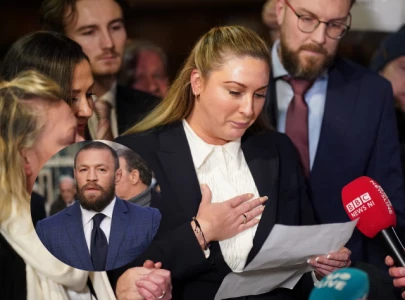
The problem is likely to grow out of proportion in the coming years when, according to projections, the debt servicing will swell to unmanageable levels, nearing $30.5 billion in 2022-24 from a daunting $5 billion in 2018-19.
These figures are a tip of the iceberg and economic numbers are mostly in red. So the important question is that the recently introduced amnesty scheme, tax reforms will address some of the above issues? Why now, timing of the whole scheme which to some is a bit late in the day? What is the legal, constitutional dimension?
The government recently introduced The Voluntary Declaration of Domestic Assets Ordinance, 2018 which was meant to address some of the above economic issues. Seriously in one line it will not even scratch the surface. The aim of the legislation should have been meeting the tax deficit, boosting trade, encouraging indigenous businesses; clearly is not addressed by the recent legislation. Instead the ordinance is legally vague and without direction and seems to have been done hurriedly leaving ample legal lacunas to be challenged in superior courts, and perhaps meant to address only a handful.
Let us first analyse how were the past amnesty schemes different from this one and what mistakes are repeated again. In the past similar schemes offered tax amnesty on declaring hidden “indigenous” income, or undeclared local assets but this is the first time that the current legislation focuses on declaring “foreign assets” instead. If the past scheme to unearth “domestic assets” failed how can these schemes to declare foreign assets be successful? For instance, the tax amnesty scheme 2000 is a classic example which was introduced for those businesses who “underinvoiced” to hide their income. People used “Benami” transactions or assets, and hence the true owner would keep his assets under someone else’s name. Both schemes failed.
Two, in order to make such scheme successful, the person is looking for continuity of the scheme, stability of the government to stick to its amnesty, which is interestingly taking place in the last three months of the government’s tenure and is valid only till the end of June 2018.
Interestingly, the voluntary declaration of domestic assets like the 2000 amnesty scheme which specially mentioned NAB, offered protection-cum-immunity from all laws, something from which the government should have learnt its lessons that such immunity cannot or perhaps will not hold. Can an ordinance offer amnesty for a “crime” even if it’s white collar one? Some may argue otherwise.
Now specifically discuss the current amnesty law introduced. The Voluntary Declaration of Domestic Assets Ordinance, 2018 has offered many lacunas which are worth highlighting. One, every person other than he who has been “office holder” can bring their undeclared, hidden foreign assets back to Pakistan.
Interestingly, the definition of “office holder” is someone who held such a position from 2000-2018, not before. This again will be challenged for anyone who was an office holder before — without prejudice, a person like former senator Saifur Rehman (now residing in Qatar) held office in 1999 and not since after? The case was purely hypothetical and does not mean that anyone else cannot fall “out” of the definition of office-bearer or to prejudice a former senator and accountability head.
Two, amnesty gives complete cover to the benami transactions. Such an amnesty was also offered before as discussed above which failed miserably. The ordinance explicitly states that “office bearers” would not be allowed to use this offer. It would be fair to say that most so-called “corrupt office bearers” keep such assets under the names of their “front men” anyway. They would let it remain hidden. This some may argue is why the word “person” has been inserted in the law conveniently. Most assets of corrupt office-bearers will be brought in Pakistan which is saved under the names of “front men”. Since the scheme is valid only till June 2018, why offer such a short lease?
Three, the ordinance offers immunity and confidentiality. Without any prejudice, this too will be challenged in courts because this is in direct contradiction to the principles of justice, criminal trial, and above all the Constitution. The entire “NAB exercise” currently going, as aired on TV, would seem meaningless if an ordinance such as this is allowed to override “constitutionally” protected NAB. This does not end here, the contradiction regarding immunity, confidentiality, scope, scale of amnesty in the said mentioned ordinance is amusing let alone diagonally opposite legally.
At one end the ordinance allows the asset to be added in the balance sheet, to be declared in tax, but offers complete confidentiality of the one who is declaring it, on the other hand. Section 12 of the ordinance offers immunity from being questioned under any law, even one cannot be called in to give evidence. This section alone suggests that the government plans to learn from its past experience in Hudabiya paper mill case; however, this too will be challenged and superior courts will not entertain it.
Why then do we need such an ordinance now? Why would someone want to bring in hidden, undeclared assets to Pakistan when a government is about to end its tenure! Perhaps to ensure that someone can bring in the money in time for elections!!! After all, elections are an expensive affair.
Published in The Express Tribune, April 18th, 2018.
Like Opinion & Editorial on Facebook, follow @ETOpEd on Twitter to receive all updates on all our daily pieces.












COMMENTS
Comments are moderated and generally will be posted if they are on-topic and not abusive.
For more information, please see our Comments FAQ